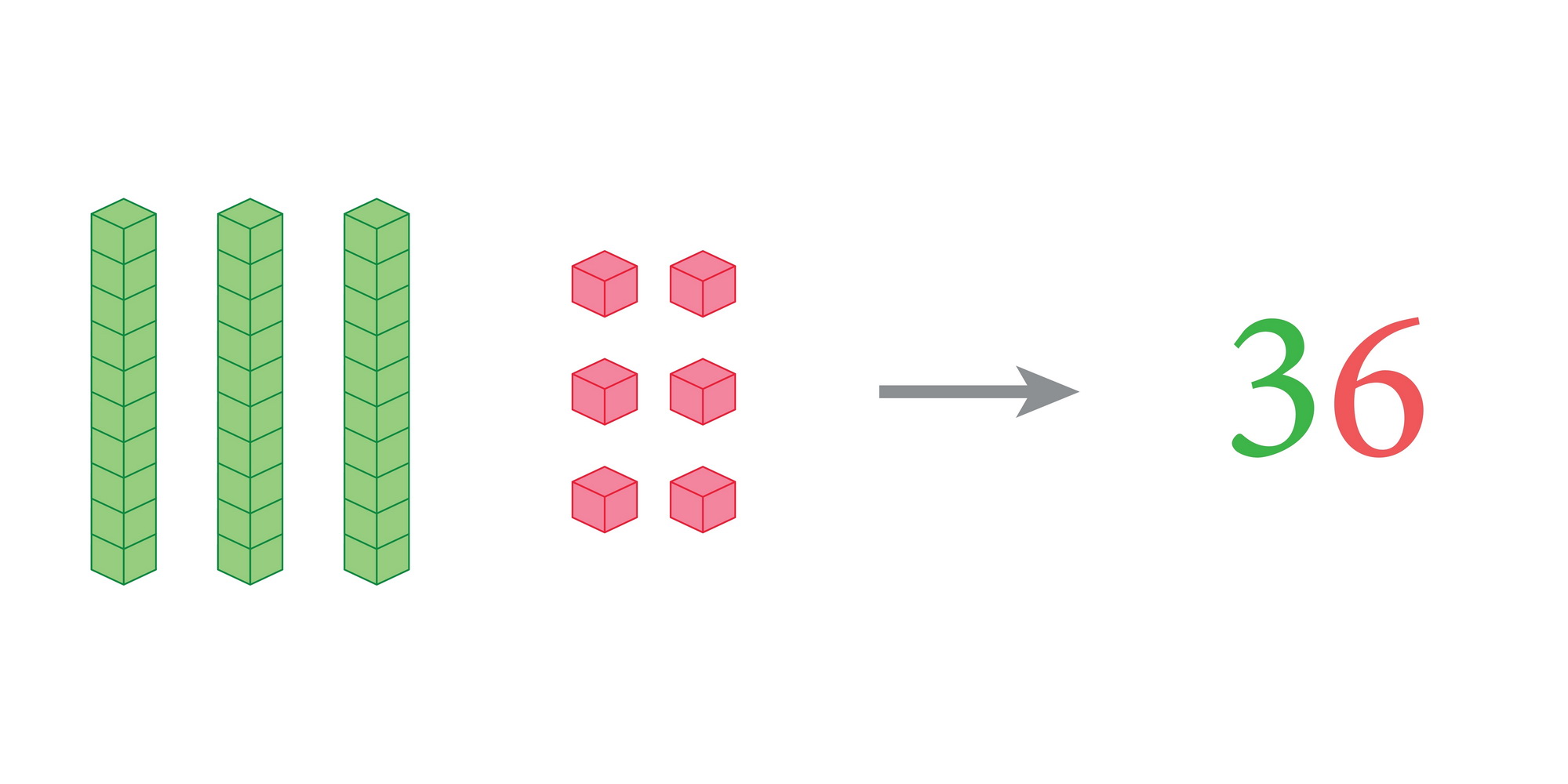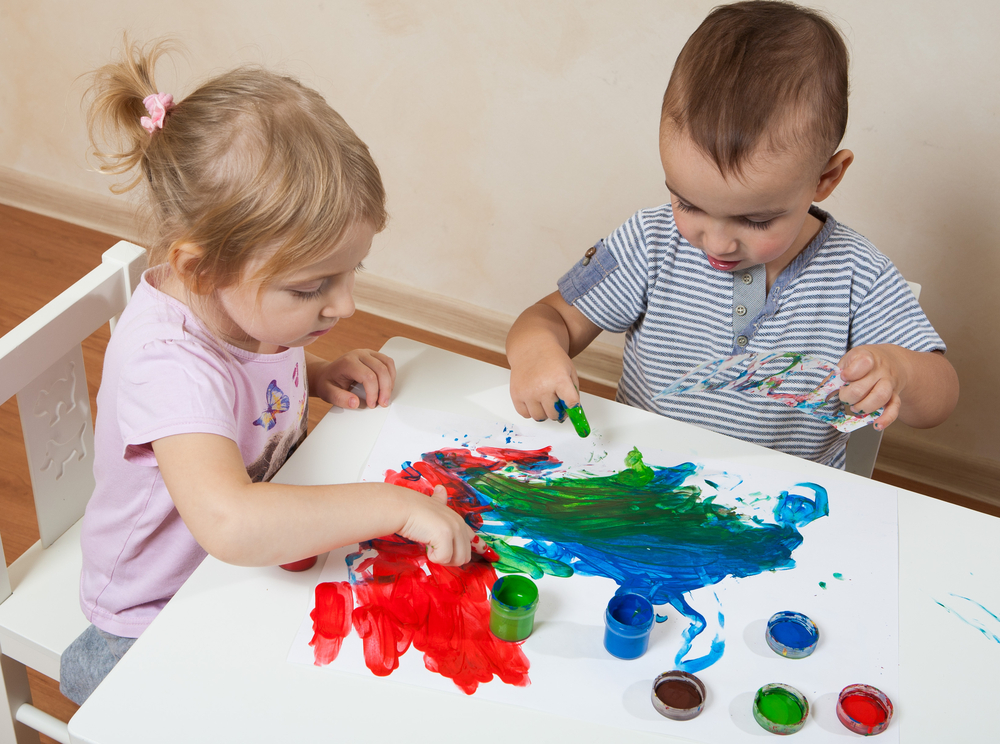Poems worksheets activities for Ages 6-8
10 filtered results
-
From - To
Discover a treasure trove of engaging poems worksheets activities designed specifically for children aged 6-8! Our resources help young learners explore the beauty of poetry through fun, interactive worksheets that enhance their reading, comprehension, and creativity skills. With a variety of activities, including rhyme recognition, thematic explorations, and creative writing prompts, your child will unlock the joy of language while developing a lifelong appreciation for literature. Perfect for classroom use or at-home learning, these worksheets support early literacy and inspire imaginations. Dive into the delightful world of poems and watch your child's love for words blossom today!


Rhymes in Poems Worksheet
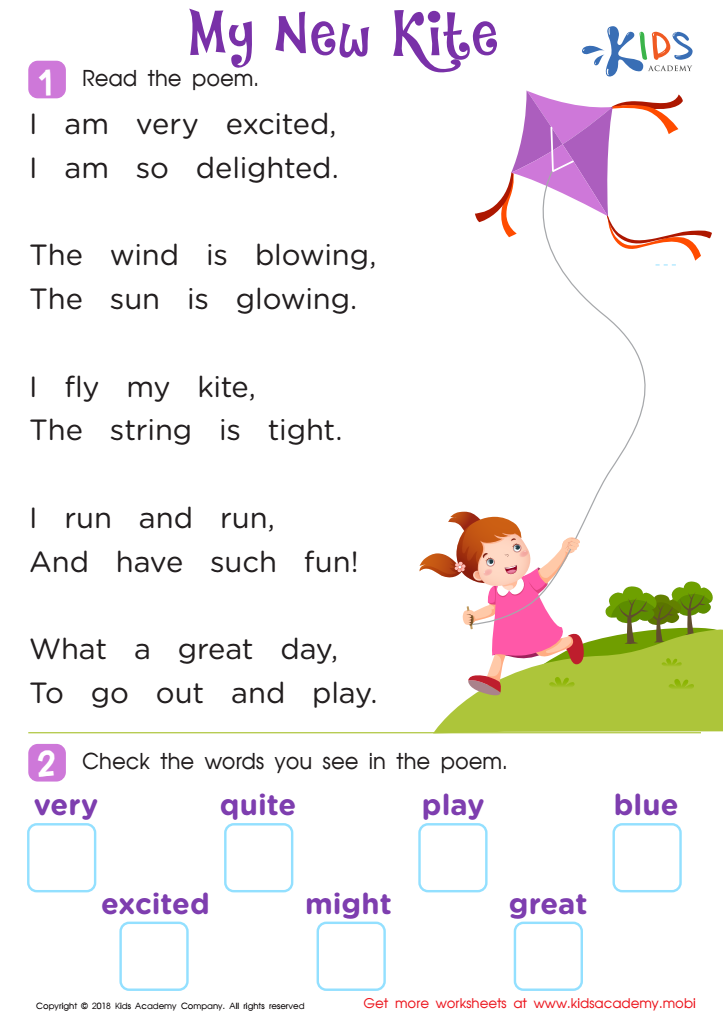

Poem: My New Kite Worksheet


Baa Baa Black Sheep Printable
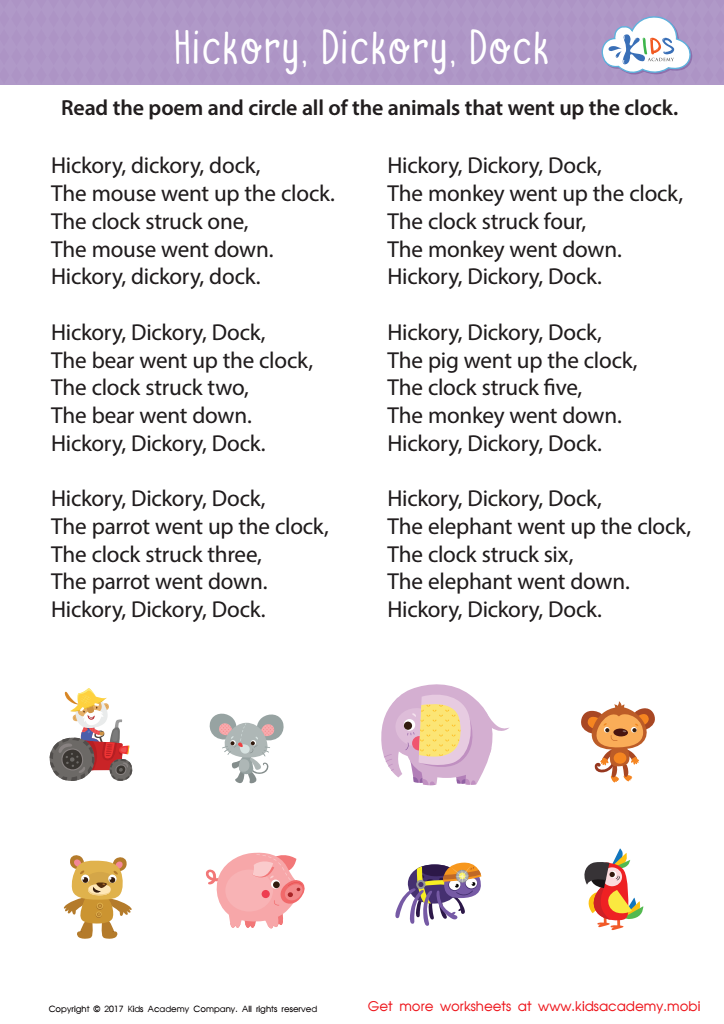

Hickory Dickory Dock Sequencing Worksheet
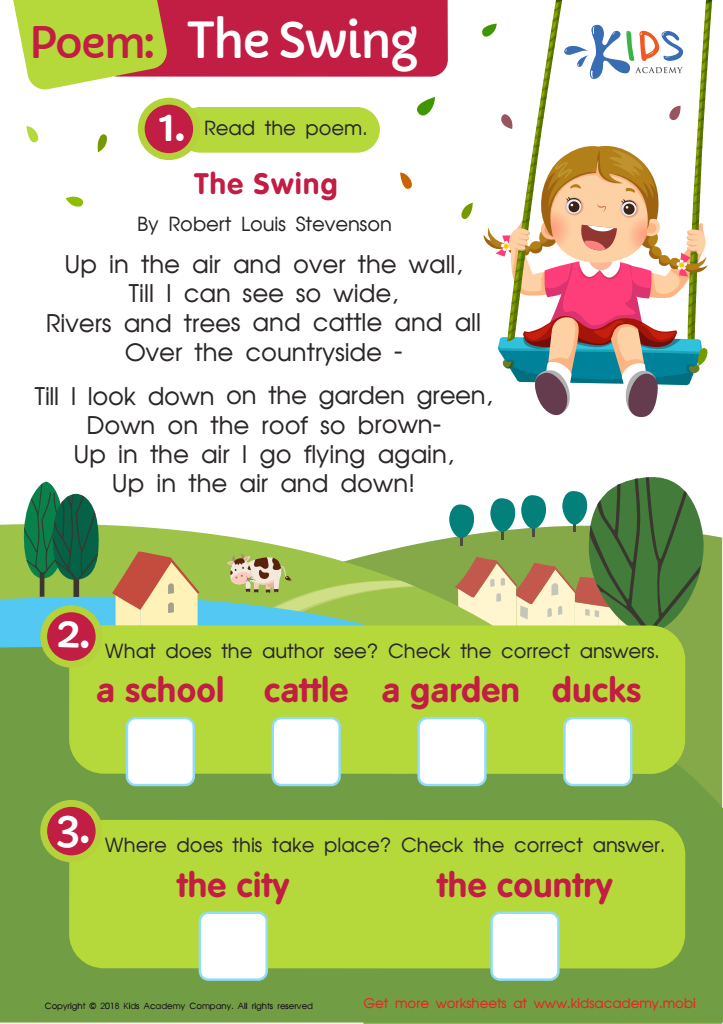

Poem: The Swing Worksheet
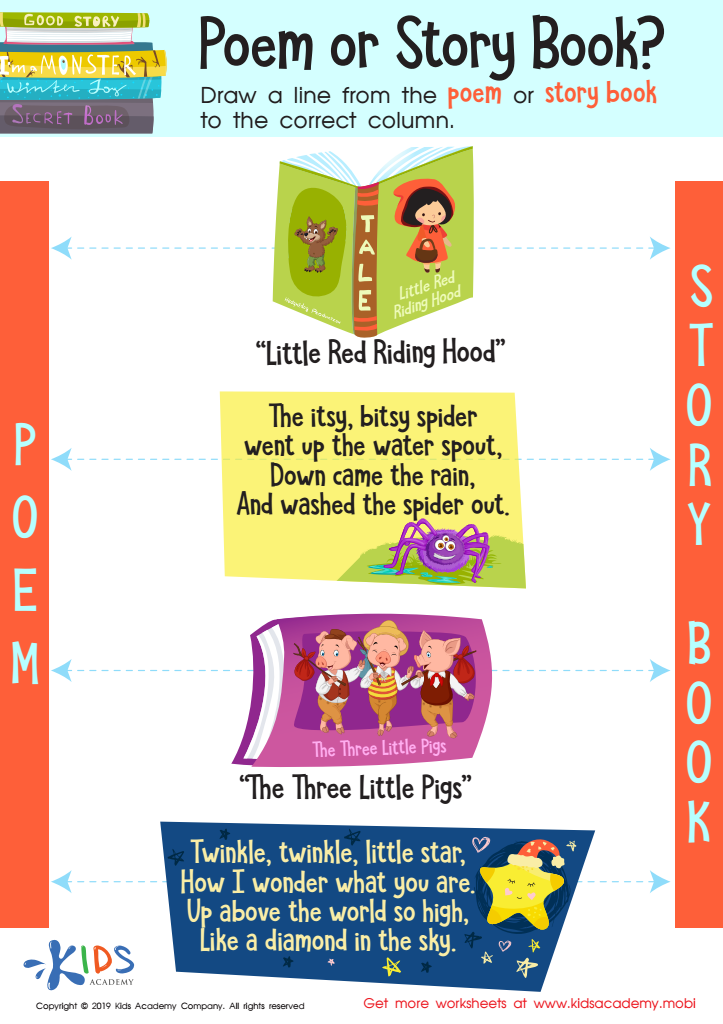

Poem or Story Book? Worksheet
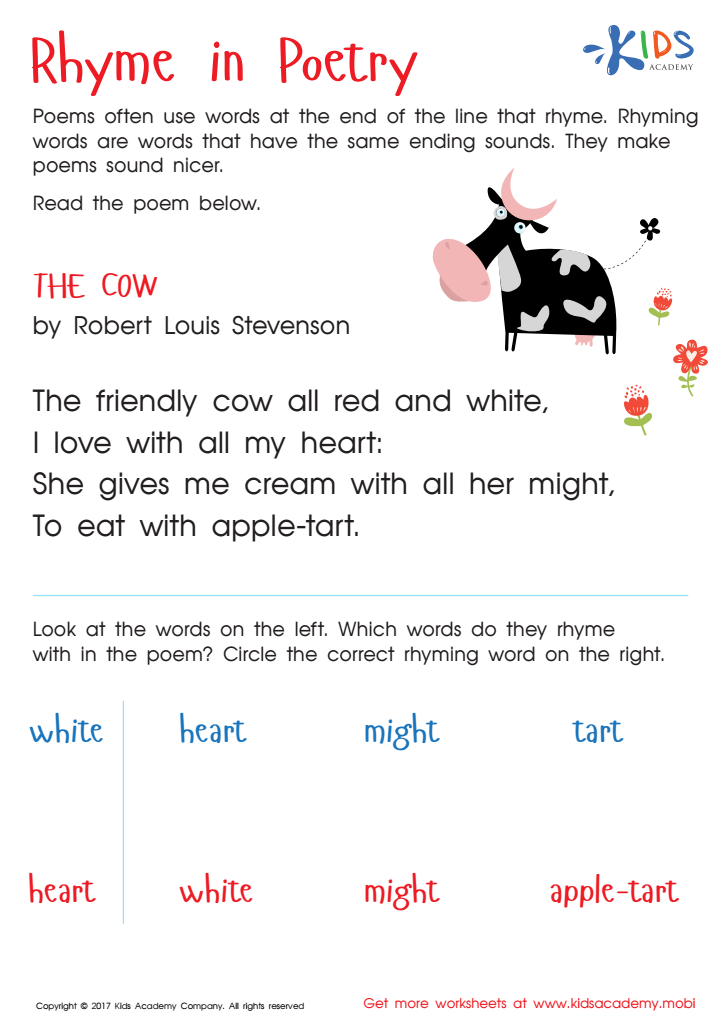

Rhyme In Poetry Worksheet
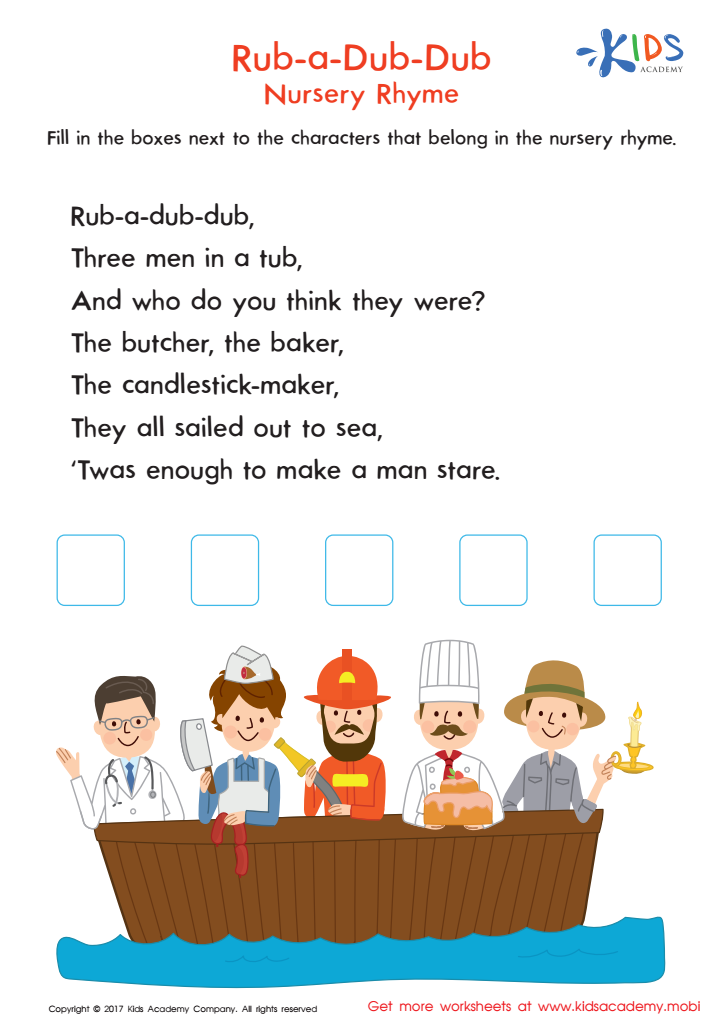

Rub a Dub Dub Printable
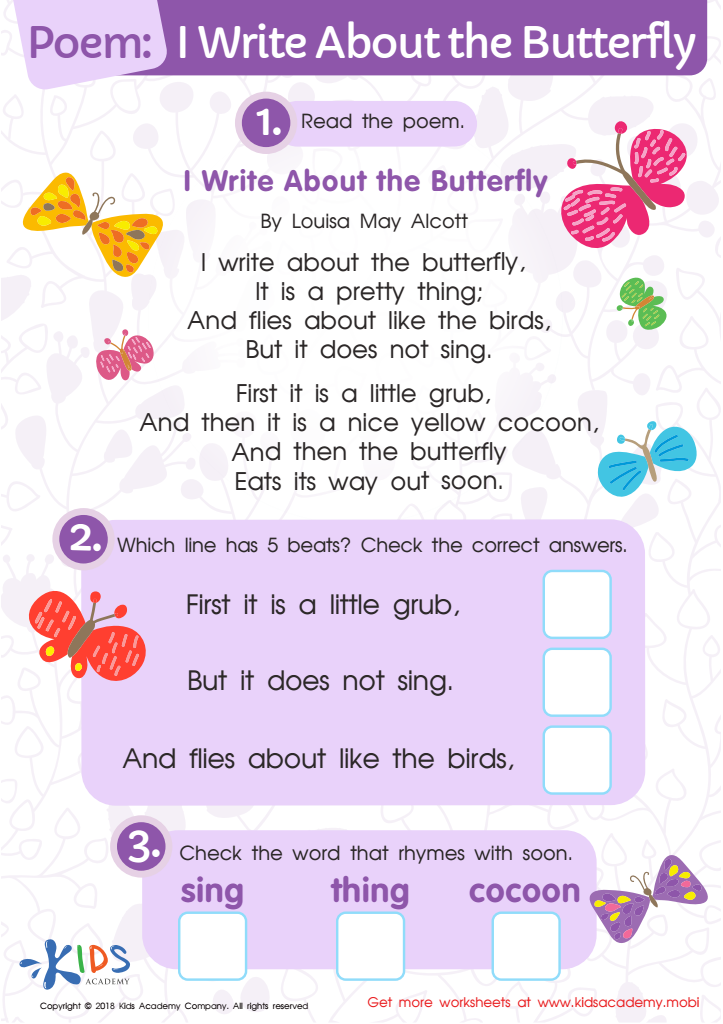

Poem: I Write About The Butterfly Worksheet
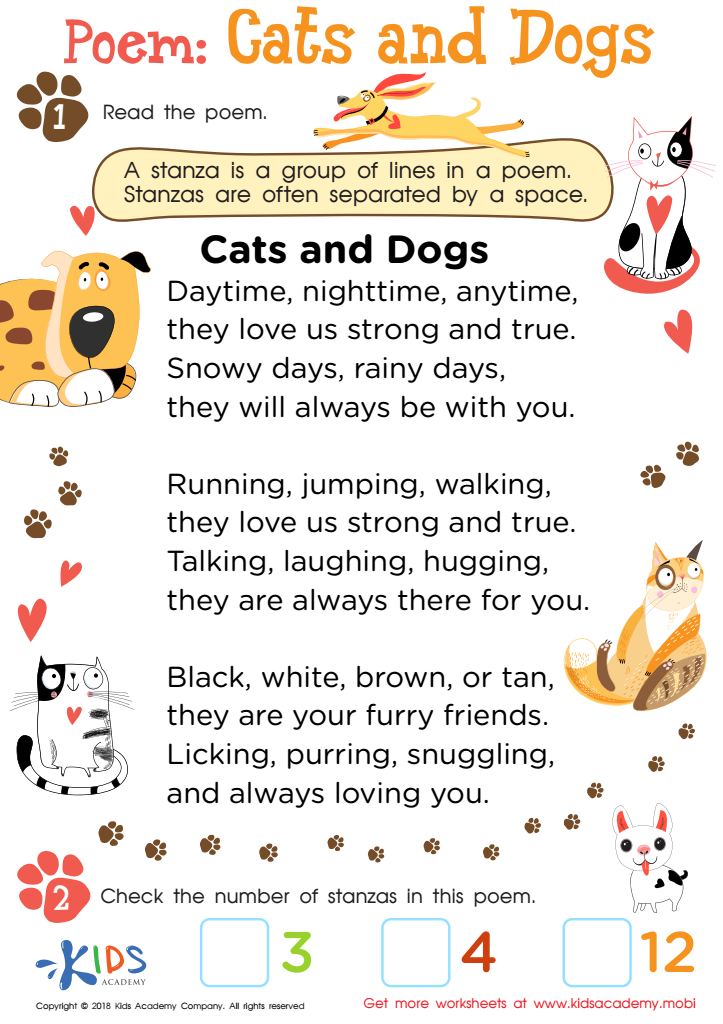

Poem: Cats and Dogs Worksheet
Parents and teachers should prioritize poetry activities for children aged 6-8 for several compelling reasons. First, poetry cultivates creativity and self-expression, allowing children to explore their thoughts and feelings in unique ways. This age group is naturally imaginative, and engaging them in poetry encourages them to articulate their ideas, fostering communication skills.
Moreover, poetry exposes children to linguistic patterns, rhythms, and rhymes, enhancing their phonemic awareness—a crucial foundation for reading skills. As they listen to and create verses, they become more attuned to language nuances, which can improve vocabulary and comprehension.
Poetry activities are also highly interactive, promoting collaboration and social skills among peers. Children learn to share and appreciate each other’s work, which builds empathy and respect for diverse perspectives.
Furthermore, poetry can enhance their emotional intelligence, teaching them to identify and express a range of emotions. This emotional connection is vital for their overall development and helps them navigate social situations effectively.
In summary, poetry activities enrich the educational experience, making learning enjoyable while laying essential groundwork for literacy, emotional understanding, and interpersonal skills, all crucial for a child’s holistic development. Engaging with poetry helps children become more articulate, empathetic, and creative problem-solvers.

 Assign to My Students
Assign to My Students


